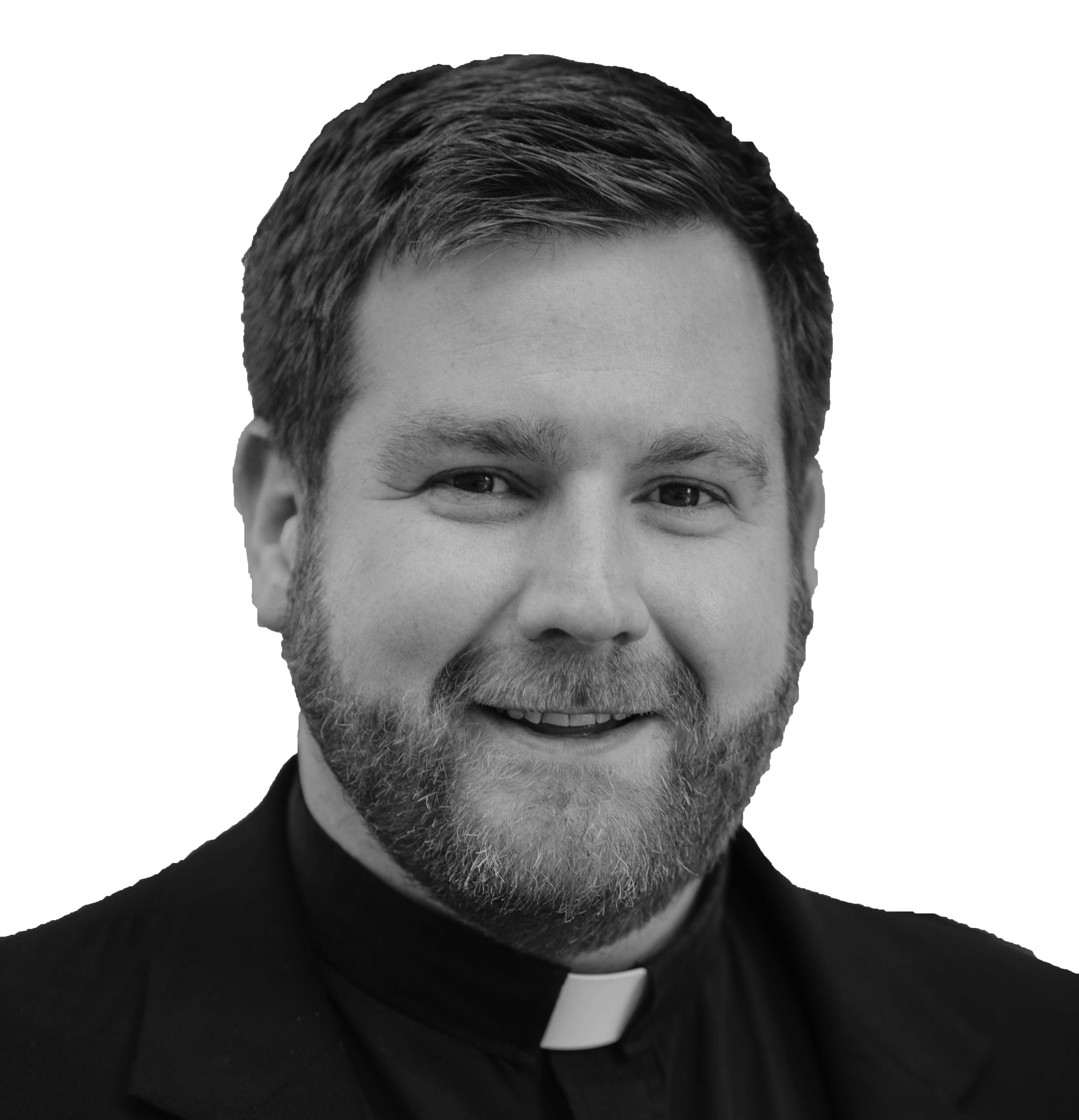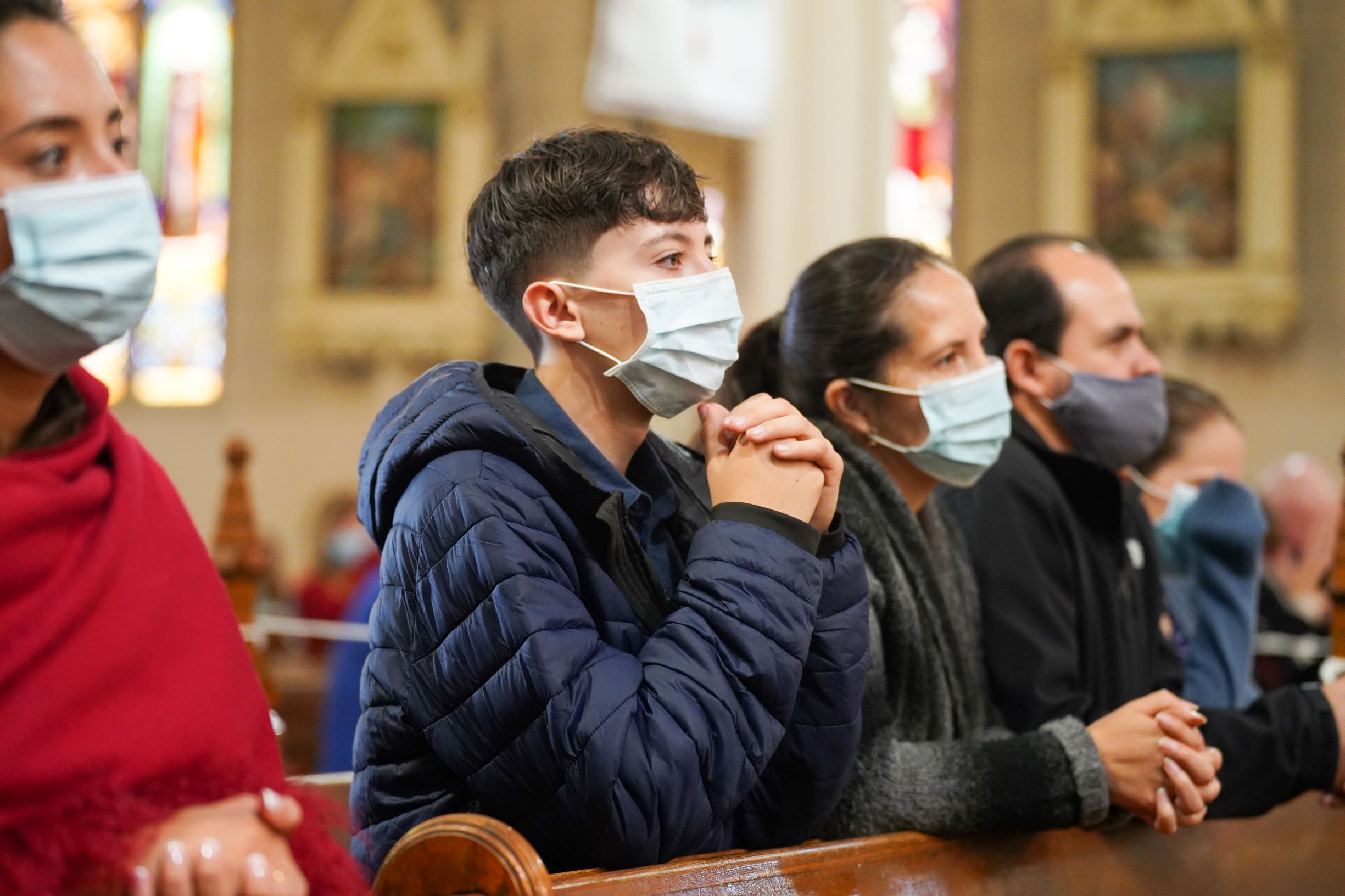It has been more than eight months since any Catholic in the Archdiocese of Detroit has had the moral obligation to participate at Sunday Mass. Since those earliest days, we have reopened parish churches, adoration chapels, and our Catholic schools. Parishes and schools have found creative ways to allow the necessary in-person gatherings that are so crucial to our Catholic faith to go forward while still providing a safe environment.
I am very proud of the leadership of Archbishop Allen H. Vigneron and the ways our pastors have exhibited the spirit of cooperation and spirit of innovation — two good habits articulated in Unleash the Gospel — which have been crucial for our Church since public Masses resumed in late May.
While there is always a risk of contamination whenever we leave our homes, I am additionally proud that Catholic churches have not been the source of any significant spreads of COVID-19 in Metro Detroit. One of the major reasons for this success has been our commitment to wise and prudent health and safety guidelines to which our churches have been called to adhere.
These requirements for the safe celebration of the Mass at our parishes require the cooperation of all the faithful; they do not work if they are only partially followed. The most important requirement is for masks to be worn at Mass. While we have heard from many of the faithful that they do not like wearing them or they are confused by or unconvinced of the scientific evidence of their efficacy, I would like to offer three reasons it is important for each of us to commit to wearing a mask at Mass.
Kindness and good manners
I had a funeral Mass some years ago. Before the Mass, a friend of the deceased came into the church wearing a baseball cap. I asked him to remove it, and he flatly refused. He said “it was his right” to wear his cap, and he did not want to take it off. This guest insisted on what he wanted to do rather than accede to a simple and reasonable request from the Church. In doing so, he put me in the position of either making a scene with him at a funeral for someone he loved or allowing him to brazenly disregard our parish rules.
No one is asking for perfection in this endeavor (especially for children). We are all together learning how to make our lives are normal as possible while keeping each other safe. As more and more of us return to Mass, we will need to be patient with ourselves and each other. Let’s be kind together. Let’s care for the vulnerable together. Let’s be saints together!
Priests are asked to ensure that our parishes are safe for many people who come to our churches. They have been given a directive from the archbishop to ensure that masks are worn at Mass (and other indoor parish events). When someone willfully ignores this requirement, it puts the priest in a difficult situation. He (along with his parish staff) has been charged with enforcing this mask requirement at his parish, not unlike a grocery store or restaurant manager. He will undoubtedly be asked to intervene, and if we intentionally defy the archbishop’s directive, he is put in a no-win situation.
We should not do this to a fast-food employee, a grocery store worker, a nurse, or a priest. It is only good manners to follow this simple and reasonable requirement. In doing so, we show good manners and basic human kindness to our parish staffs. Please wear a mask so that we do not put our priests, parish staffs, or volunteers in this unwinnable situation.
Justice and the common good
Our society is interdependent. When I am on the road, I am reliant on the other drivers for a safe commute, regardless of how careful I am. I can increase or decrease my risk by my attentiveness, but I cannot completely eliminate my risk. I need other drivers to stop at red lights, look before changing lanes, and ignore that text message while they are driving. If my car is bigger or I have better insurance, I am not absolved of my need to be responsible in how I interact with other cars.
Wearing a mask at Mass is a commitment to the common good and an act of justice to your neighbor. Not knowing who might asymptomatically carry COVD-19, during the time of a pandemic, this small action requires little of us and can go a long way toward helping our society defeat this disease. While those who are at highest risk are invited (or at times asked) to stay home from Mass, we cannot take the attitude of being reckless at Mass. Caring for the most vulnerable is a staple of our Catholic social teaching. By wearing a mask, we are able to do almost all of the activities we were prevented from doing in April, May and June. It does not alleviate us from our responsibility to be vigilant in other ways, but it does go a long way in allowing us to return to the regular practice of our Catholic faith.
As Catholics, we believe that “Faith and reason are like two wings upon which the human spirit rises to the contemplation of truth” (St. John Paul II, Fides et Ratio). There is no disharmony between what we know to be true by divine revelation and what we know through reason, particularly through scientific knowledge. This unity gives us a confidence in science when it remains in its proper sphere.
We do not look to science to explain (or think it can disprove) the Transubstantiation of bread and wine into the Body and Blood of Christ or the existence of heaven and hell because these are super-scientific realities. But we do look to scientific authorities to help us understand scientific realities. Therefore, we receive with openness the scientific expertise of the CDC: “Masks are recommended as a simple barrier to help prevent respiratory droplets from traveling into the air and onto other people when the person wearing the mask coughs, sneezes, talks, or raises their voice.” While the mortality rate from COVID-19 seems to be significantly decreasing, we still found the sound scientific principles to prevent a spread of the virus. Please wear a mask out of concern for the common good and with special care for the more vulnerable who also want to participate at Mass.
Obedience and holiness
Making a judgment based on consultation from experts in these scientific areas, our archbishop has given these directives for the safe celebration of the Holy Mass in the Archdiocese of Detroit. These directives are well within his authority as our chief shepherd. We should obey him. If one is not convinced by the scientific evidence or by the appeal to general kindness and care for the common good, one should wear a mask out of humble obedience.
Obedience to one’s bishop is a good thing. Wearing a mask does not violate one’s conscience or contravene the revealed, natural, or positive law of the Church. Obedience is the surest — and often hardest — path to holiness. Great saints such as Padre Pio were ready to obey their bishops at great personal cost. If we want to be holy — to be saints! — we should readily accept opportunities to be humbled and to offer our own wills at the altar of sacrifice. In doing so, we will be more fully conformed to Jesus Christ, who is our example par excellence of obedience (cf. Phil. 2:3-11). If one does not want to wear a mask, thinks that he should not have to wear a mask, or finds it annoying to wear a mask, the grace from obediently doing so will help make him a saint.
No one is asking for perfection in this endeavor (especially for children). We are all together learning how to make our lives are normal as possible while keeping each other safe. As more and more of us return to Mass, we will need to be patient with ourselves and each other. Let’s be kind together. Let’s care for the vulnerable together. Let’s be saints together!
Fr. Stephen Pullis is director of the Archdiocese of Detroit’s Department of Evangelization and Missionary Discipleship.










